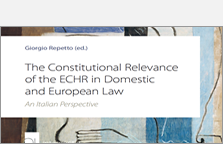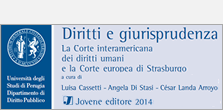PISANI M. | Brexit: la notifica di recesso ai sensi dell’art. 50 TUE non può diventare motivo di rifiuto d’esecuzione del mandato d’arresto europeo. Cambiano le regole di cooperazione giudiziaria?
Autore dell’articolo/Author
Maria Mercedes Pisani
Abstract
While the content of the withdrawal agreement between the United Kingdom and the European Union still remains unknown (and the termination period will be possibly postponed), concerns raises around the applicable criteria to the judicial cooperation, especially regarding the execution of the European arrest warrant decision. The European arrest warrant was adopted to facilitate the extradition of individuals between Member States to face prosecution for a crime or to serve a sentence. In R.O. case it is questioned if a possible violation of human rights may come from the removal of the jurisdiction of the European Court of Justice on the application of the instruments of mutual recognition and while primacy of EU law and its direct effect will be no longer applicable. The Court considered extensively human rights and how they are protected in international law, and stated that mutual confidence, related to the participation in the Council of Europe and to the ratification of the Council of Europe Convention on Extradition of 1957 cannot be affected, in the European Union framework, by the sole notification of recess as per article 50 of TUE. However as the reversion to international agreements can significantly slow down the extradition proceedings, it would be desirable to negotiate a transitional arrangement similar to the ones applicable to non Member States that participate to Schengen area. It seem that Brexit will produce new criteria for judicial cooperation criteria in an European space. […]
1. Lo spazio giudiziario europeo, il reciproco riconoscimento, uno scenario europeo.- La data del 29 marzo 2019, termine indicato per il recesso del Regno Unito dall’Unione europea, si avvicina sempre più, senza alcuna certezza riguardo alle modalità di realizzazione della Brexit; al momento della redazione di questo commento è probabile una proroga del termine per negoziare un accordo di recesso, giacché l’alternativa, che da più parti si cerca di scongiurare, è una “no deal Brexit”. Lo scenario invita a speculare filosoficamente sulle molteplici ipotesi che si delineano, ed innanzitutto a considerare gli effetti di un “no deal”, con l’improvvisa cessazione dell’applicazione dei Trattati e del diritto dell’Unione europea, l’uscita dal mercato unico, la fine della libera circolazione e la cessazione della competenza giurisdizionale della Corte di Giustizia dell’Unione europea (CGUE).













